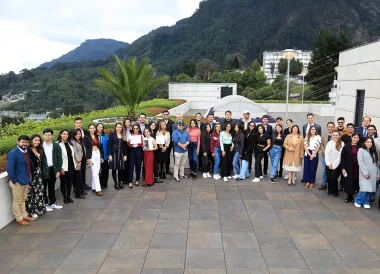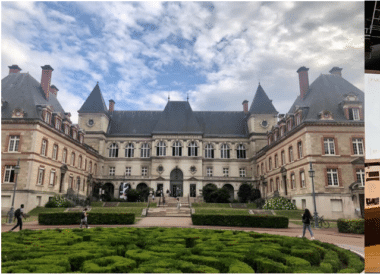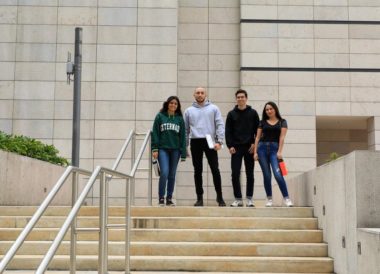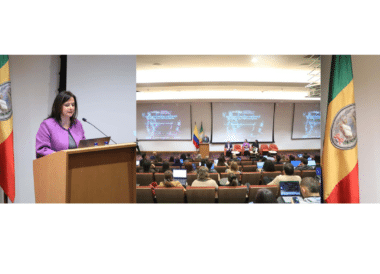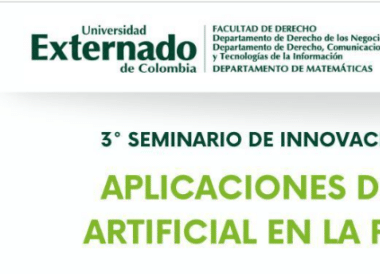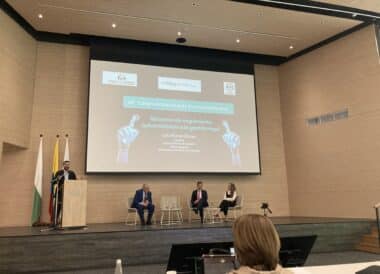6 de junio de 2017
The Tampico Case and the Recognition and Enforcement of Foreign Awards in Colombia
The Colombian Supreme Court of Justice (hereinafter the SCJ) has made incredible progress in the enforcement and recognition of foreign awards issued in the context of an international arbitration procedure. It is worth noting that there is still an important decision pending at the SCJ stage: the Tampico case.
The Colombian Supreme Court of Justice (hereinafter the SCJ) has made incredible progress in the enforcement and recognition of foreign awards issued in the context of an international arbitration procedure. It is worth noting that there is still an important decision pending at the SCJ stage: the Tampico[1] case.
Tampico Beverages, Inc, an American company, initiated an arbitration under the ICC Rules on International Arbitration in February 1, 2009. A final award was rendered on June 25, 2012 by an arbitral tribunal, whose seat was Santiago de Chile. That award was subject to an annulment procedure, but the Chilean Court did not set it aside. After this latest procedure, on August 27, 2014, Tampico commenced before the SCJ a procedure of recognition under the Hinestrosa Law and, of course, the New York Convention (hereinafter the NYC).
On June 3, 2015, following the Poligráca[2] ruling on the joint implementation of the NYC and the CCP, because the Tampico award was rendered before the entry in force of Law 1563, the SCJ declared the application inadmissible, granting 5 days to the Applicant to rectify the defaults, namely (i) the award must be enforceable according to article 694 (3) of the CCP and (ii) there must be an original or certified copy of the arbitral agreement in light of article IV of the NYC.
Instead of fulfilling the missing conditions as requested by the Court, the Applicant decided to seek a remedy (recurso de reposición) against such decision based on two grounds as follows: (i) the applicable law to the recognition procedure is the Hinestrosa law since the application for recognition was initiated after its entry into force and (ii) that the NYC must be interpreted in a favourable way, that is to say, it allows for the application of the most favourable legislation, even if such interpretation leads to the non-implementation of the NYC leaving room for the application of the most favourable domestic or international law. A decision on such remedy was made on August 18, 2016.
In such decision, the SCJ revoked the June 3, 2015 ruling. By in large, one can proudly applaud the following rulings, which one hopes will definitively mark the path to be followed by the SCJ in its future decisions on recognition of foreign awards:
- The applicable law to the recognition of foreign award applications submitted after the entry into force of the Hinestrosa Law (October 12, 2012) is such law, regardless of the date on which the award was rendered. In other words, the exequatur procedure as set forth in the CCP is no longer applicable to applications of recognition of foreign awards after the entry into force of Law 1563, even though the award was rendered before such date. This justifies one’s criticism of the Poligráca ruling, which one hopes will be definitively overruled now thanks to this latest decision. The SCJ distinguishes very clearly between the arbitral proceeding ending in an award and the so-called “exequatur” procedure (the SCJ uses the word exequatur but it must be read it as “recognition”), by saying that it is impossible to consider the “exequatur” proceeding as a continuation of the arbitration proceeding. This separation allowed the Court to apply the rule contained in article 119 of Law 1563 solely to arbitration procedures and not to the recognition of foreign awards, which are very different procedures.
- The NYC is also applicable along with Law 1563, even though, accordingly to article VII (1) of the NYC, this convention must be set-aside in order to only apply the most favourable legislation, which may be either a treaty or domestic law.
Now, the SCJ has to decide, under the latest ruling, the end of the recognition procedure in the Tampico case. Fortunately, good and favourable legal basis has been set up towards international arbitration.
[1] Tampico Beverages, INC. V. Productos Naturales de la Sabana S.A. Alquería, SCJ, Civil Chamber, August 18, 2016. Displonible AQUÍ
[2] Poligráca CA v. Columbia Tecnología Ltda, SCJ, Civil Chamber, December 19, 2013. Displonible AQUÍ
Artículos Recientes
¡Ya está disponible el caso! Segunda versión del Concurso Laboratorio de Estrategia Legal #LSL
Invitamos a los estudiantes de pregrado y postgrado de todas las carreras a presentar [...]
Masterclass Legal Operations: Transformando la Función Legal Empresarial de Guardián de Riesgos a Creador de Valor.
El Departamento de Derecho de los Negocios y la Facultad de Administración de Empresas [...]
Conclusión del Proceso de Reforma al Investor-State Dispute Settlement
En la semana del 12 de julio de 2023, durante la sesión anual de [...]
El Departamento de Derecho de los Negocios de la Universidad Externado de Colombia abre convocatoria para la vacante de Asistente de Investigación
¡Sé parte de nuestro equipo de trabajo! Perfil del cargo: Asistente de Investigación Apoyar [...]
Docente del Departamento de Derecho de los Negocios participó en el libro Blanco de la Asociación de Derecho Internacional
La Asociación de Derecho Internacional (ADI), una de la organizaciones más antiguas y prestigiosas [...]
CRYPTO IN COLOMBIA: PROSPECTIVE 2022
By: Daniel Peña Valenzuela The volatility of the main cryptocurrencies seems to be once [...]
Convocatoria de Monitores.
El Departamento de Derecho de los Negocios se complace en anunciar la apertura para [...]
¿Se avecina una regulación de la Franquicia por parte del Gobierno? ¿O lo impedirá la Corte Constitucional?
Por: Juan Miguel Álvarez* y Diana Marcela Araujo* En diciembre del 2020, el congreso [...]
Ciclo de seminarios de Innovaciones en Justicia Digital: un espacio desde la academia que replantea el futuro del sistema de justicia.
El Seminario en Innovaciones en Justicia Digital es un evento de la Universidad Externado [...]
Rostros de mentira: Retos legales producidos por las ‘Deepfakes’
Palabras clave: Deepfake, IA, contenidos audiovisuales, redes generativas adversarias, derecho probatorio, intimidad personal. Una [...]
Memorias: Tercer seminario de innovaciones en la justicia digital- aplicaciones de la inteligencia artificial en la práctica judicial.
El pasado 19 de septiembre de 2024, las instalaciones de la Universidad Externado fueron [...]
Celebramos la realización del 40º Congreso Nacional de Derecho Comercial: Novedades y retos de la contratación mercantil y del arbitraje comercial
El pasado 30 de octubre, en Medellín, se celebró el 40º Congreso Nacional de [...]



